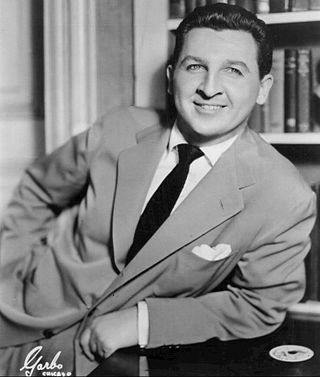
Edward Vincent Bracken was an American actor. Bracken came to Hollywood prominence for his comedic lead performances in the films Hail the Conquering Hero and The Miracle of Morgan's Creek both from 1944, both of which have been preserved by the National Film Registry. During this era, he also had success on Broadway, with performances in plays like Too Many Girls (1940).
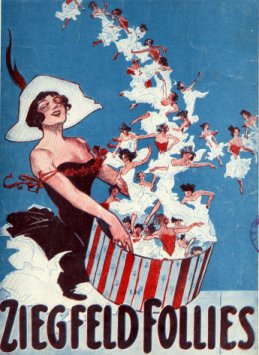
The Ziegfeld Follies were a series of elaborate theatrical revue productions on Broadway in New York City from 1907 to 1931, with renewals in 1934, 1936, 1943, and 1957. They became a radio program in 1932 and 1936 as The Ziegfeld Follies of the Air.
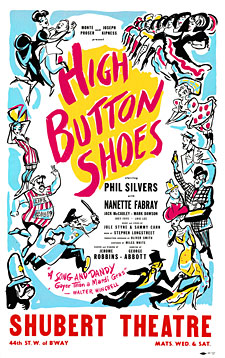
High Button Shoes is a 1947 musical with music by Jule Styne, lyrics by Sammy Cahn and book by George Abbott and Stephen Longstreet. It was based on the semi-autobiographical 1946 novel The Sisters Liked Them Handsome by Stephen Longstreet. The story concerns the comic entanglements of the Longstreet family with two con men in Atlantic City.

A Chorus Line is a 1975 musical with music by Marvin Hamlisch, lyrics by Edward Kleban, and a book by James Kirkwood Jr. and Nicholas Dante.

Elliott Gould is an American actor.

Mary Beth Peil is an American actress and soprano. She began her career as an opera singer in 1962 with the Goldovsky Opera Theater. In 1964 she won two major singing competitions, the Young Concert Artists International Auditions and the Metropolitan Opera National Council Auditions; the latter of which earned her a contract with the Metropolitan Opera National Company with whom she performed in two seasons of national tours as a leading soprano from 1965 to 1967. She continued to perform in operas through the 1970s, notably creating the role of Alma in the world premiere of Lee Hoiby's Summer and Smoke at the Minnesota Opera in 1971. She later recorded that role for American television in 1982. With that same opera company she transitioned into musical theatre, performing the title role of Cole Porter's Kiss Me, Kate in 1983. Later that year she joined the national tour of Rodgers and Hammerstein's The King and I as Anna Leonowens opposite Yul Brynner, and continued with that production when it opened on Broadway on January 7, 1985. She was nominated for a Tony Award for her portrayal.
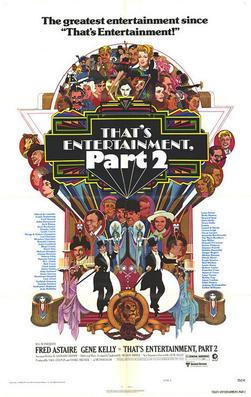
That's Entertainment, Part II is a 1976 American compilation film released by Metro-Goldwyn-Mayer and a sequel to That's Entertainment! (1974). Like the previous film, That's Entertainment, Part II was a retrospective of famous films released by MGM from the 1930s to the 1950s. Some posters for the film use Part 2 rather than Part II in the title.

The Shubert Theatre is a Broadway theater at 225 West 44th Street in the Theater District of Midtown Manhattan in New York City. Opened in 1913, the theater was designed by Henry Beaumont Herts in the Italian Renaissance style and was built for the Shubert brothers. Lee and J. J. Shubert had named the theater in memory of their brother Sam S. Shubert, who died in an accident several years before the theater's opening. It has 1,502 seats across three levels and is operated by The Shubert Organization. The facade and interior are New York City landmarks.
Eddie Lawrence was an American monologist, actor, singer, lyricist, playwright, artist, director and television personality, whose comic creation, "The Old Philosopher," gained him a cult following for over five decades.
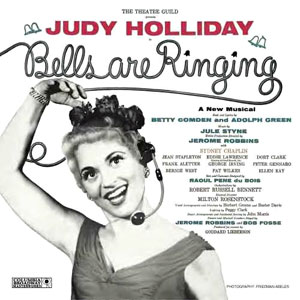
Bells Are Ringing is a musical with a book and lyrics by Betty Comden and Adolph Green and music by Jule Styne. The story revolves around Ella, who works at an answering service, and the characters that she meets there. The main character was based on Mary Printz, who worked for Green's answering service. Three of the show's tunes, "Long Before I Knew You", "Just in Time", and "The Party's Over", became standards.
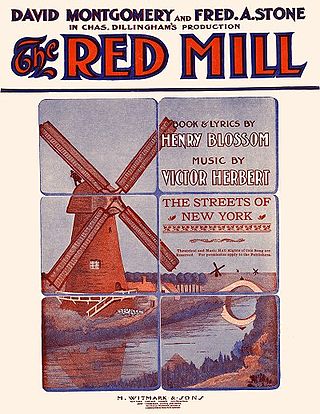
The Red Mill is an operetta written by Victor Herbert, with a libretto by Henry Blossom. The farcical story concerns two American vaudevillians who wreak havoc at an inn in the Netherlands, interfering with two marriages; but all ends well. The musical premiered on Broadway on September 24, 1906, at the Knickerbocker Theatre and ran for 274 performances, starring comedians Fred Stone and David C. Montgomery. It also had a London run and toured extensively, and in 1945 had a long-running Broadway revival. The Red Mill includes the famous songs "Every Day is Lady's Day with Me", "The Streets of New York", "You Never Can Tell About a Woman", and "Because You're You".

Edwin Fitzgerald Jr., known professionally as Eddie Foy Jr., was an American stage, film and television actor. His career spanned six decades, beginning as part of the vaudeville act Eddie Foy and the Seven Little Foys.
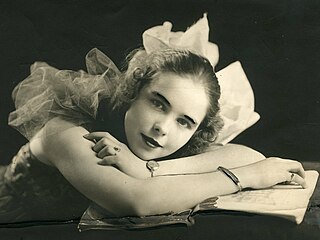
Gloria Foy was an American dancer, singer, vaudeville performer, and star of musical revues. Her family were theatrical people. Her father was Harry Foy, but she was no relation to the more famous Eddie Foy.

Funny Girl is a 1968 American biographical-musical film directed by William Wyler and written by Isobel Lennart, adapted from her book for the stage musical of the same title. It is loosely based on the life and career of comedienne Fanny Brice and her stormy relationship with entrepreneur and gambler Nicky Arnstein.

You Never Know is a musical with a book by Rowland Leigh, adapted from the original European play By Candlelight, by Siegfried Geyer and Karl Farkas, with music by Cole Porter and Robert Katscher, lyrics by Cole Porter, additional lyrics by Leigh and Edwin Gilbert, directed by Leigh, and songs by others.

Alvin Colt was an American costume designer. Colt worked on over 50 Broadway shows.

Irving Walter Phillips was a noted American cartoonist, playwright, television scriptwriter, author, illustrator and educator. He is best remembered for his daily newspaper comic panel The Strange World of Mr. Mum.

Miller Theater, originally the Sam S. Shubert Theatre and later, the Merriam Theater, is Philadelphia's most continuous location for touring Broadway show theatre. It is located at 250 South Broad Street within the Avenue of the Arts cultural district of Center City Philadelphia. The Theatre was built by The Shubert Organization in 1918.
The Melody Top Theatre was a musical theatre located in Milwaukee, Wisconsin and featured performances in the round. The theatre that was originally built as a circus-style tent is now defunct.

















